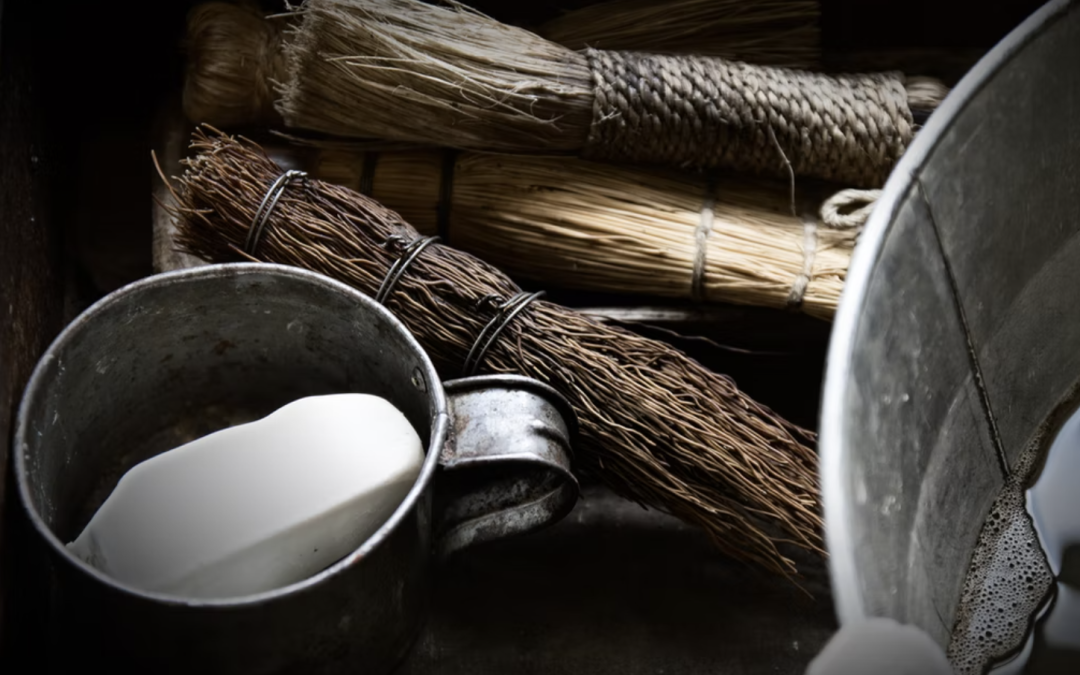I first felt compelled to try to give up hurry and worry for Lent when I found this note tucked in my Bible next to the story of Mary and Martha in Luke 10. It was a poem I had written some years back and it read:
Lord, prune the Martha spirit away from my heart.
Busyness and distractions, set them all apart.
No matter if my house is not perfectly neat,
Help me to be content to just sit at your feet.
I don’t remember what age I was when I wrote that poem but based on the sticky note with an “H” on it, I would guess I was in high school. And it occurred to me that I had always identified with Martha. Ever since I was a kid, I remember feeling this compulsion, this obsession with staying productive and busy, for it was in the productiveness and busyness that I found my worth. Sitting still and resting has never come naturally to me and quite honestly feels like a waste a lot of the time. It’s also when the worry tends to seep in. It seems like Martha may have felt the same way.
Every good story has a protagonist and an antagonist, and Luke 10 is no exception. When we read the story of Mary and Martha, we tend to see Martha as the antagonist. The one who cared more about the appearance of her house than spending time with her Savior. The one who let busyness take precedence over relationships. And when those very same aspects of my personality come out, I feel guilty. So, I began to read the story of Mary and Martha as a condemnation of people like me.
However, this story is anything but a condemnation. Rather, it’s a reminder that our worth is not only defined by what we produce. Having a Martha spirit isn’t something to be “pruned away,” like my 15-year-old self wrote, but rather pruned within us. And this pruning starts with realizing that God wasn’t asking Martha to change who she was – he was asking her to reprioritize. To change her priorities, not her personality. To be willing to lay down certain parts of her identity to choose “the better thing.”
It’s interesting to me that Jesus never says Martha had chosen something bad – rather, Mary had chosen something better (Luke 10:42). In that word “better,” we find freedom from the shame of busyness because it implies what Martha had chosen (the busyness, the preparations, the hospitality) can at times and in moderation be good. Even the Bible warns against laziness and implores us to work wisely and diligently. Martha’s desire to work, be hospitable and provide the best experience for her guests and Jesus was not bad. She was created that way. She was seeking to use her gifts.
But, in her busyness, Martha was missing Jesus. Instead of leading to joy and satisfaction, her striving was causing her to become upset and worried. The fact she could not lay down her work to sit with her Savior for even a moment is a key indicator that productivity was an idol in her life. Therefore, what Mary had chosen was better.
At its core, the story of Mary and Martha isn’t about changing who you are but instead rearranging your priorities. It’s a reminder that our success, achievement and productivity should never become the defining qualities of our identity. An invitation to lay down even the strongest pulls of our personality to be content in Jesus’s presence.
As we move through Lent, this story reminds me that it’s possible to honor the way we were created while still making a conscious effort to readily set aside even the good parts of our personality for that better thing.

